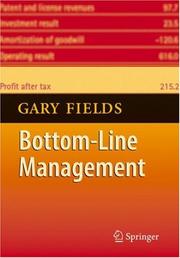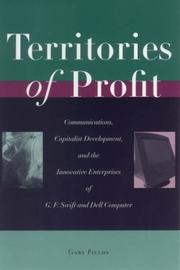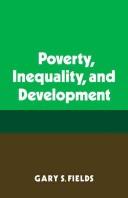| Listing 1 - 10 of 31 | << page >> |
Sort by
|

ISBN: 3540714464 364209063X 9786611927561 1281927562 3540714472 Year: 2009 Publisher: Berlin ; New York : Springer,
Abstract | Keywords | Export | Availability | Bookmark
 Loading...
Loading...Choose an application
- Reference Manager
- EndNote
- RefWorks (Direct export to RefWorks)
Bottom Line Management presents a new approach to management. It will help you if you are a senior manager in an organization and have a seat at the table where key decisions are made. It will help you be a valued employee recognized as doing the good work of the organization. What makes you valuable to your organization? You’re valuable if the organization would lose out if it weren’t paying you for your input. The head would have significantly more to do if you weren’t there. Without you, less would be produced. In your absence, poorer decisions would be made. But in order for you to be valuable, your input must truly be valuable. Your input cannot be valuable if you do not know what the organization is trying to achieve and what strategy the head of the organization and the other leaders have adopted to try to achieve it, or if you cannot contribute to the making of good, sound, purposeful decisions. Bottom Line Management will help you understand the organization’s bottom line and contribute to it. Bottom Line Management gives you essential tools so that you can truly be valuable to your organization.
Decision making. --- Knowledge management. --- Success in business. --- Decision making --- Knowledge management --- Success in business --- Management --- Business & Economics --- Management Theory --- Industrial management. --- Deciding --- Decision (Psychology) --- Decision analysis --- Decision processes --- Making decisions --- Management decisions --- Business administration --- Business enterprises --- Business management --- Corporate management --- Corporations --- Industrial administration --- Management, Industrial --- Rationalization of industry --- Scientific management --- Business. --- Leadership. --- Organization. --- Planning. --- Operations research. --- Business and Management. --- Business Strategy/Leadership. --- Operation Research/Decision Theory. --- Choice (Psychology) --- Problem solving --- Business --- Business failures --- Creative ability in business --- Prediction of occupational success --- Industrial organization --- Operations Research/Decision Theory. --- Operational analysis --- Operational research --- Industrial engineering --- Management science --- Research --- System theory --- Organisation --- Ability --- Command of troops --- Followership --- Creation (Literary, artistic, etc.) --- Executive ability --- Organization
Digital
ISBN: 9783540714477 Year: 2009 Publisher: Berlin, Heidelberg Springer Berlin Heidelberg
Abstract | Keywords | Export | Availability | Bookmark
 Loading...
Loading...Choose an application
- Reference Manager
- EndNote
- RefWorks (Direct export to RefWorks)
Operational research. Game theory --- Production management --- Business management --- bedrijfsplanning --- bedrijfsorganisatie --- management --- speltheorie --- operationeel onderzoek

ISBN: 0804747210 0804747229 Year: 2004 Publisher: Stanford, Calif. : Stanford University Press,
Abstract | Keywords | Export | Availability | Bookmark
 Loading...
Loading...Choose an application
- Reference Manager
- EndNote
- RefWorks (Direct export to RefWorks)
Technological innovations. --- Computer industry --- Meat industry and trade --- Innovations --- Ordinateurs --- Viande --- Technological innovations --- Case studies --- Technological innovations --- Case studies --- Industrie --- Innovations --- Cas, Etudes de --- Industrie et commerce --- Innovations --- Cas, Etudes de
Book
ISBN: 0520964926 9780520964921 9780520291041 Year: 2017 Publisher: University of California Press
Abstract | Keywords | Export | Availability | Bookmark
 Loading...
Loading...Choose an application
- Reference Manager
- EndNote
- RefWorks (Direct export to RefWorks)
Enclosure marshals bold new arguments about the nature of the conflict in Israel/Palestine. Gary Fields examines the dispossession of Palestinians from their land-and Israel's rationale for seizing control of Palestinian land-in the contexts of a broad historical analysis of power and space and of an enduring discourse about land improvement. Focusing on the English enclosures (which eradicated access to common land across the English countryside), Amerindian dispossession in colonial America, and Palestinian land loss, Fields shows how exclusionary landscapes have emerged across time and geography. Evidence that the same moral, legal, and cartographic arguments were used by enclosers of land in very different historical environments challenges Israel's current claim that it is uniquely beleaguered. This comparative framework also helps readers in the United States and the United Kingdom understand the Israeli/Palestinian conflict in the context of their own histories.
Land tenure --- amerindian. --- cartographer. --- conflict. --- contested lands. --- dispossession. --- international relations. --- israel palestine relations. --- middle east. --- palestinians. --- politicians. --- politics. --- poly sci students. --- teachers.
Book
ISBN: 9780199794645 0199794642 Year: 2012 Publisher: New York, N.Y. Oxford University Press
Abstract | Keywords | Export | Availability | Bookmark
 Loading...
Loading...Choose an application
- Reference Manager
- EndNote
- RefWorks (Direct export to RefWorks)
Social problems --- Sociology of work --- Labour economics --- Developing countries --- Working poor --- Labor market --- Working poor - Developing countries --- Labor market - Developing countries

ISBN: 0521225728 0521298520 0511572174 0511865910 9780521298520 9780521225724 9780511572173 Year: 1980 Publisher: Cambridge Cambridge University Press
Abstract | Keywords | Export | Availability | Bookmark
 Loading...
Loading...Choose an application
- Reference Manager
- EndNote
- RefWorks (Direct export to RefWorks)
Economists have traditionally concentrated on aggregate economic growth to measure a country's development, but previously they have also considered income distribution performance. In this book Gary Fields reverses conventional approaches by using income distribution as the primary indicator. He examines what is known about the distribution of income and poverty, inequality, and development. He explores the main causes of poverty and inequality and the extent to which they have been reduced by individual countries in the course of their economic growth. Recognizing that conclusions vary with the type of income distribution measure used, Fields proposes that changes in absolute poverty be adopted as the primary index of a developing nation's progress and suggests that the growth rate of the GNP and character of that growth be regarded as the principal determinants of the levels of poverty and inequality. This framework calls for new models new data. and new microanalytic techniques in order to understand the results of development efforts. Fields employs evidence from case studies of six developing nations to suggest some explanations for differing patterns of development and calls for development planning founded on a firm commitment to helping the poor.
Social stratification --- Third World: economic development problems --- Income --- Economic development --- Income distribution --- Equality --- AA / International- internationaal --- 338.340 --- 330.35 --- 339.21 --- 330.564 --- Income distribution. --- Distribution of income --- Income inequality --- Inequality of income --- Distribution (Economic theory) --- Disposable income --- Egalitarianism --- Inequality --- Social equality --- Social inequality --- Political science --- Sociology --- Democracy --- Liberty --- Development, Economic --- Economic growth --- Growth, Economic --- Economic policy --- Economics --- Statics and dynamics (Social sciences) --- Development economics --- Resource curse --- Algemene ontwikkeling in de Derde Wereld. --- Economische groei. Kwantitatieve toename. Technische vooruitgang --zie ook {338.09} --- Ongelijkheid en herverdeling van vermogens en inkomens. Inkomensbeleid. --- Verdeling van nationaal inkomen. Inkomensverdeling --- Economic development. --- Equality. --- Police --- History. --- 330.564 Verdeling van nationaal inkomen. Inkomensverdeling --- 330.35 Economische groei. Kwantitatieve toename. Technische vooruitgang --zie ook {338.09} --- Algemene ontwikkeling in de Derde Wereld --- Ongelijkheid en herverdeling van vermogens en inkomens. Inkomensbeleid --- Developing countries: economic development problems --- Business, Economy and Management

ISBN: 0262062151 0262272601 0585385785 9780262272605 9780585385785 9780262062152 Year: 2001 Publisher: New York, N.Y. Russell Sage Foundation
Abstract | Keywords | Export | Availability | Bookmark
 Loading...
Loading...Choose an application
- Reference Manager
- EndNote
- RefWorks (Direct export to RefWorks)
Most of the world's people live in "developing" economies, as do most of the world's poor. The predominant means of economic development is economic growth. In this book Gary Fields asks to what extent and in what circumstances economic growth improves the material standard of living of a country's people. Most development economists agree that economic growth raises the incomes of people in all parts of the income distribution and lowers the poverty rate. At the same time, some groups lose out because of changes accompanying economic growth. Fields examines these beliefs, asking what variables should be measured to determine whether progress is being made and what policies and circumstances cause some countries to do better than others. He also shows how the same data can be interpreted to reach different, even conflicting, conclusions. Using both theoretical and empirical approaches, Fields defines and examines inequality, poverty, income mobility, and economic well-being. Finally, he considers various policies for broad-based growth. Copublished with the Russell Sage Foundation.
National wealth --- Economic growth --- Third World: economic development problems --- Income --- Developing countries --- Poverty --- Income distribution --- Economic conditions --- 330.56 --- 339.96 --- -Destitution --- Wealth --- Basic needs --- Begging --- Poor --- Subsistence economy --- Nationaal inkomen. Volksinkomen. Gezinsinkomen. Vermogensstratificatie. Particuliere inkomens en bestedingen. Armoede. Honger --- Ontwikkelingshulp. Ontwikkelingssamenwerking. Ontwikkelingsproblematiek --- -Emerging nations --- Fourth World --- Global South --- LDC's --- Least developed countries --- Less developed countries --- Newly industrialized countries --- Newly industrializing countries --- NICs (Newly industrialized countries) --- Third World --- Underdeveloped areas --- Underdeveloped countries --- BUSINESS & ECONOMICS --- Development / Economic Development --- Economic History --- Business & Economics --- -Nationaal inkomen. Volksinkomen. Gezinsinkomen. Vermogensstratificatie. Particuliere inkomens en bestedingen. Armoede. Honger --- -Economic conditions --- 339.96 Ontwikkelingshulp. Ontwikkelingssamenwerking. Ontwikkelingsproblematiek --- 330.56 Nationaal inkomen. Volksinkomen. Gezinsinkomen. Vermogensstratificatie. Particuliere inkomens en bestedingen. Armoede. Honger --- -339.96 Ontwikkelingshulp. Ontwikkelingssamenwerking. Ontwikkelingsproblematiek --- Destitution --- Economic conditions. --- Developing countries: economic development problems --- ECONOMICS/Trade & Development --- Poverty - Developing countries --- Income distribution - Developing countries --- Developing countries - Economic conditions
Book
ISBN: 9811378037 9811378029 Year: 2019 Publisher: Singapore : Springer Singapore : Imprint: Springer,
Abstract | Keywords | Export | Availability | Bookmark
 Loading...
Loading...Choose an application
- Reference Manager
- EndNote
- RefWorks (Direct export to RefWorks)
This is the first study that puts together a comprehensive and in-depth analysis of the drivers of the labor income share across a number of countries in Asia. This book provides an insightful companion to the study of labor income shares that plays a vital role in understanding the relationship between national income and personal income, and the relationship between wage inequality and wealth inequality. The timing of the book is ideal, as the ongoing debate over a global decline in the labor income share is far from settled. To this extent, evidence from the Asian countries is mixed. The labor income share in some Asian countries has been rising since the 1990s. The purpose of this edited volume is to gain more insights on the potential drivers of the Asian experience. The first half of the book pays attention to the measurement problems related to the earnings of self-employed and workers in the informal sector. Then it puts together country case studies examining a wide range of factors driving the labor income share in Asia.
Asia-Economic conditions. --- Labor economics. --- Asian Economics. --- Labor Economics. --- Economics --- Asia—Economic conditions.
Book
ISBN: 0192692895 0192692909 0192867334 9780191959387 Year: 2023 Publisher: Oxford, England : Oxford University Press,
Abstract | Keywords | Export | Availability | Bookmark
 Loading...
Loading...Choose an application
- Reference Manager
- EndNote
- RefWorks (Direct export to RefWorks)
This book examines heterogeneity within informal work by applying a common conceptual framework and empirical methodology. It contains countries studies that use panel data to present a comparative perspective on worker transitions between formal and informal work across developing countries across the Global South.
Informal sector (Economics) --- Developing countries. --- Emerging nations --- Fourth World --- Global South --- LDC's --- Least developed countries --- Less developed countries --- Newly industrialized countries --- Newly industrializing countries --- NICs --- Third World --- Underdeveloped areas --- Underdeveloped countries
Book
Year: 1984 Publisher: Cambridge, Mass. National Bureau of Economic Research
Abstract | Keywords | Export | Availability | Bookmark
 Loading...
Loading...Choose an application
- Reference Manager
- EndNote
- RefWorks (Direct export to RefWorks)
| Listing 1 - 10 of 31 | << page >> |
Sort by
|

 Search
Search Feedback
Feedback About UniCat
About UniCat  Help
Help News
News